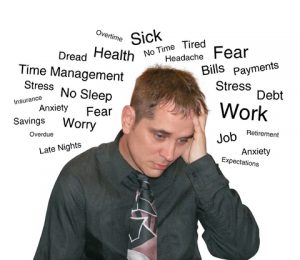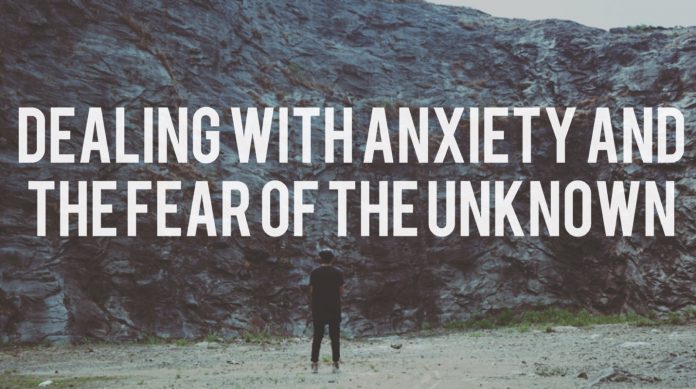If you have ever felt that you’re overwhelmed or as if you are going to have a panic attack, you are not alone.
Everyone has feelings of nervousness, stress, tension and anxiety from time to time.
It is quite natural to feel stressed before an exam or a performance or even during an over stimulating or busy period.
However, no one desires to live with anxiety.
Below are some tips on how to cope with anxiety
1.Learn what triggers your anxiety
Is it school, work or something else that is identifiable? Write in a journal every moment you feel anxious or stressed, and look for a pattern.
 2. Learning to Accept It
2. Learning to Accept It
It is vital that you accept your anxiety rather than try to run away from it.
Anxiety may culminate to fears, but many people also tend to fear anxiety. This fear might make your anxiety to work.
Learn to talk about it explicitly, and never try to hide when you are suffering. That moment when you find your anxiety less intimidating, it becomes easier for you to overcome it.
3. Turn your anxiety into a movie.
You can let go of worrying by disconnecting yourself from the situation.
One of the ways of doing this is by imagining your anxious thoughts as a show. Maybe it encompasses little guys in funny hats who tap dance and sing out your worries while you sit in the audience munching popcorn as a calm observer.
4. Meditation and Yoga
Both yoga and meditation have the prospective of improving your ability to cope with stress.
These activities teach techniques of healthier breathing. Poor breathing has been recognized among the issues that make anxiety symptoms worse, more so during panic attacks.
Most people deem the spiritual qualities of yoga and meditation as being helpful for curing anxiety.
5. Breathe
Breathing will definitely slow down or stop the stress response.
Indulge in conscious, deep breathing for around 1 minute at a time, 10-15 times daily every moment you are waiting for something eg., an appointment, the phone to ring, waiting in a line, the kettle to boil etc
 6. Have a Little Fun
6. Have a Little Fun
Laughing avails a favorable way to discharge tension and increase good feelings.
Getting in touch with fun is not easy for a serious, tense worrier.
A therapy goal would entail relearning the activities that you had fun doing in the past and prescribing yourself some fun.
7. Exercise/Physical Activity
Exercise is not just a matter of getting fit.
Majority of the people that experience anxiety don’t engage in sufficient physical activity. Many experts consider this among the issues that cause anxiety.
Physical activities improve the immune system by releasing calming neurotransmitters (known as endorphins), burning away stress hormones and tiring the muscles.
It is important for controlling anxiety and stress, and extremely important for coping.
8. Set aside worry time
On most occasions, we take a “Crackberry” approach when dealing with our worries.
They surface unannounced, and we stop everything else to address them―even when we ought to be doing something else.
What if you do not respond right away? Try to set aside 20 minutes every day just for your worries. If you are fretting at some point, jot down the reason and resolve to think about it later.
You will spend almost the entire day anxiety-free.
 9. Repeat your worry until you are bored
9. Repeat your worry until you are bored
If for example you have a fear of elevators, you can get rid of it if you riding in one a thousand times in a row.
You will be very anxious at first, the anxiety will continue to dwindle, and eventually it would have no effect.
Therefore, take the troublesome thought that has been nagging and say it over and over, slowly, silently, for 20 minutes. It is difficult to keep your mind on a worry mode if you repeat it that many times.
This can be referred to as “boredom cure” for obvious reasons.
10. Positive Thinking
Learning how to think positively is an important step in learning how to cope with anxiety.
There are several ways to train yourself how to think positively. This includes faking positivity, spending time with more positive people and writing in a positivity journal.
These will have an effect on your ability to manage stress.
11. Connect with others
Spend time with family or friends. Organized activities are immense, but mere hanging out works too.
Indulging in activities with those we feel close to deepens our bonds, and allows us to feel secure and supported. The fun that comes with it allows us to feel less upset and happier about things.
If you feel nervous or worried about something, talk about it with someone who cares and listens and it will help you feel much better and able to cope.
You will be reminded that everyone has such feelings now and then. You are not alone.
 12. Take your hand off the horn
12. Take your hand off the horn
You relentlessly check the weather prior to a big outdoor event. You tend to replay that awkward comment you made, wishing that you can take it back. And, yes, you hoot your horn in traffic.
Trying to take command of things that cannot be controlled makes you like the swimmer that panics and slaps at the water while screaming. It will get you nowhere.
Alternatively, you should imagine that you are floating on the water with spread arms while looking up to the sky. This might be a paradox, but the instant you give in to the moment, you feel far more in control.
13. Get involved
Volunteer or find any other way to be active in your community. Something that creates a support network, and offers a break from everyday stress.
14. Do not let worries prevent you from living your life
Many of the worries might turn out to be false. The consequences of your anxiety will include a rapid pulse, less sleep, a little embarrassment e.t.c.
These are just forms of inconveniences. What can you do even when you feel anxious? Almost anything.









